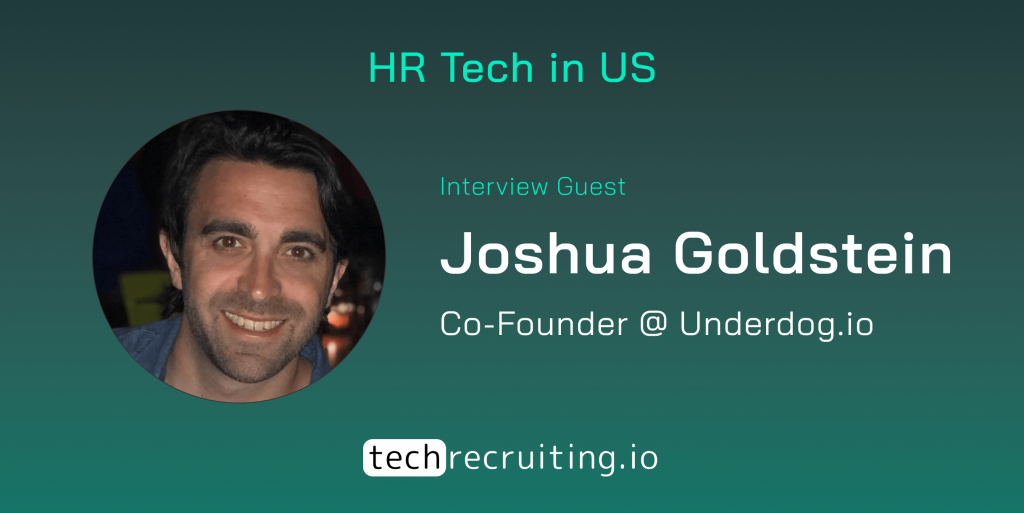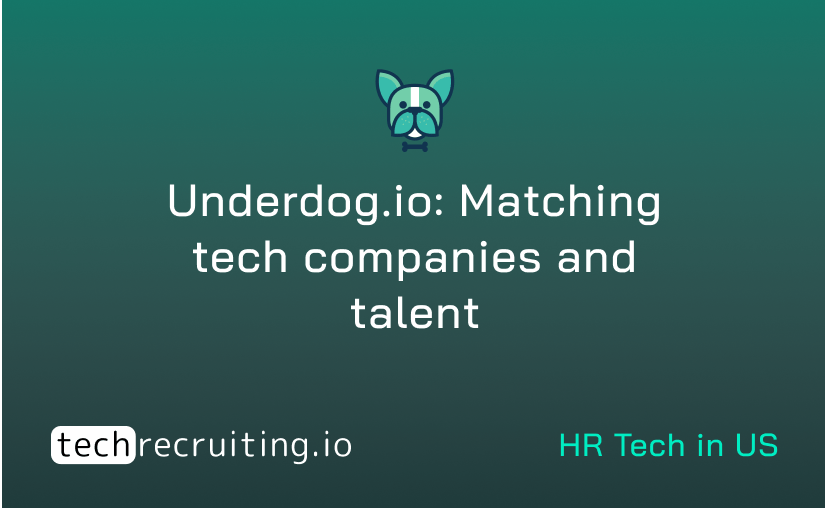In our new category “HR Tech in US” we present HR tech companies from the USA and what the European HR world can learn from them.
In this interview, I spoke with Joshua Goldstein. He is Co-Founder of Underdog.io, a company that brings tech companies and talent together.
Joshua, you founded Underdog.io, a company that brings together tech companies and tech talent. What is special about your approach? How does it work?
Our focus has always been on quality and efficiency for both the candidates who are searching for opportunities, and the companies looking to bring on the best talent. This focus generates a better user experience, which drives everything else. In the early days, we were an email-based product, which was the most efficient way to distribute qualified candidates to exciting companies. Since we’ve grown, we’ve built software to help ensure meaningful connections with little-to-no wasted time and energy.
Is this approach applicable internationally? Do you see any differences between the US and, for example, the European tech scene?
Each market is different. The European tech ecosystem is rich with diversity, bringing with it unique challenges. But at its heart, recruitment is about people. While tools like Underdog.io have found success in the US, the principles of quality and efficiency are universal. It’s just a matter of tailoring the approach to resonate with the specific audience.
What is special about US tech talent? Do they really all earn as much salary as you always hear? What is the importance of salary for tech talent in the US?
Many of the best technology companies are built in the US, which means the tech talent gets a front-row seat. They are the ones driving the innovation at scale.
With regards to salaries, it’s a spectrum. FAANG and FAANG-adjacent companies have driven salaries higher. To compete, other tech companies have had to raise their compensation as well. With that said, salaries will vary depending on the location, company size, company stage, etc. Beyond salary, what we’ve observed is an increasing emphasis on values, growth potential, and work environment.

What does the future of (tech) recruiting look like from your perspective?
The future of tech recruiting is all about meaningful connections. It’s not just about matching a CV to a job description. It’s about aligning values, culture, and visions. As the tech landscape changes, so do the skills and adaptabilities companies are looking for. It’s about finding that sweet spot where a candidate’s vision aligns with a company’s goals. Having worked with tech candidates at Underdog.io for the last decade, I’ve seen firsthand the shift towards more meaningful recruitment.
How can technology help shape that future?
Technology brings scalability, insights, and personalization to the table. It can help us understand trends, predict needs, and tailor experiences for both candidates and companies. While algorithms and data play a crucial role, the human element remains irreplaceable. Platforms that can strike a balance, understanding the tech and the human side of things, are the ones that stand out.
Joshua, thank you for the interview and your insights.

